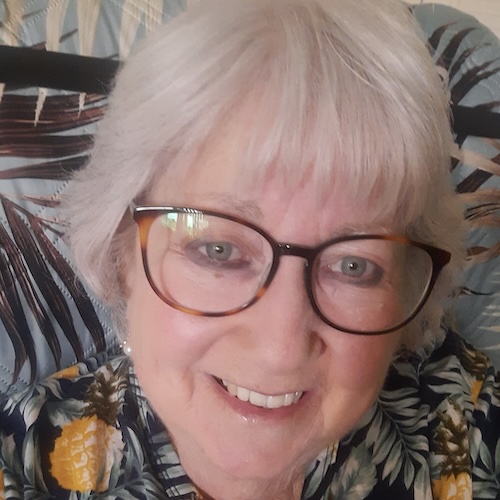How Long Can You Live with Chronic Lymphocytic Leukemia?
Dr. Adam Kittai and Dr. Joanna Rhodes share their thoughts on CLL life expectancy
Receiving a chronic lymphocytic leukemia (CLL) diagnosis is likely to lead to a very human question: How long can I or my loved one live with CLL? To answer that question, we went directly to two CLL experts who have seen patients at all different stages.
In this conversation, Dr. Adam Kittai from The Ohio State University – The James, and Dr. Joanna Rhodes from Rutgers Cancer Institute of New Jersey share their insight and expertise on Chronic Lymphocytic Leukemia (CLL), offering a comprehensive understanding of the disease landscape. Through their combined knowledge, they shed light on factors influencing the lifespan of individuals with CLL, such as disease biology, genetic tests, and age at diagnosis.
Together, Dr. Rhodes and Dr. Kittai impart not only scientific insights but also a sense of hope, emphasizing the personalized nature of each CLL journey.
People can live decades with CLL, and they can live decades without needing treatment. Everyone’s a little bit different.
Dr. Joanna Rhodes
This interview has been edited for clarity and length. This is not medical advice. Please consult with your healthcare provider to make informed treatment decisions.
The views and opinions expressed in this interview do not necessarily reflect those of The Patient Story.
- How long can individuals live with chronic lymphocytic leukemia (CLL), and what factors contribute to the variation in life expectancy?
- Could you elaborate on the significance of changes in white blood cell count for individuals with CLL?
- What can you tell us about specific survival rates and life expectancy for people with CLL?
- How do you approach discussing survival statistics with patients, considering the emotional impact it may have?
- Dr. Kittai, can you share some insights on what to expect regarding survival rates for individuals with CLL??
- CLL Patient Stories
How long can individuals live with chronic lymphocytic leukemia (CLL), and what factors contribute to the variation in life expectancy?
Dr. Joanna Rhodes: People can live decades with CLL, and they can live decades without needing treatment. Everyone’s a little bit different. Some of that has to do with the age at which you’re diagnosed, some of it has to do with your disease biology, and some of that can be told by genetic tests that we send on your CLL. It gives me an idea of how I think your CLL is going to behave potentially over time. Some of that we can tell also within the first couple of years by what your blood counts do over time.
Could you elaborate on the significance of changes in white blood cell count for individuals with CLL?
Dr. Joanna Rhodes: Now, the natural course of CLL is eventually, your white blood cell count will go up. The first time that happens, it feels very scary for sure because you don’t know how that’s going to happen over time. But your white blood cell count going up doesn’t mean it might not come back down. CLL cells are pretty reactive, so if anything is going on, if you have an infection or if you had surgery, your white blood cell count can go up. It doesn’t mean it’ll stay that high. It can go back down. That’s something that we see pretty commonly in clinical practice.
»MORE: Hear directly from patients living well with CLL
What can you tell us about specific survival rates and life expectancy for people with CLL?
Dr. Joanna Rhodes: According to SEER, which is our National Cancer Institute data, the five-year survival rate currently for CLL is around 89%. That means at five years, 89% of people who were diagnosed with CLL are still alive. What we don’t always know is where the 11% death rate is from because the median age of diagnosis of CLL is 70. As we get older, other things can happen, like heart disease, hypertension, and motor vehicle accidents. It doesn’t necessarily take into account exactly why patients who have CLL are passing away.
“Get creative and try to find ways to bring joy to your life and happiness because life is short for all of us. No one knows what the next five seconds are going to bring so just live your life and enjoy your life”
Susan K. | Explore her CLL story
How do you approach discussing survival statistics with patients, considering the emotional impact it may have?
Dr. Joanna Rhodes: That’s also a hard statistic to hear, so one of the ways that I frame this for patients is that while we have statistics, that’s taking a whole group of people and figuring out the trend. The only person that matters is you. You’re what we call an n-of-1, and so that’s important to remember. Just because there’s a number out there doesn’t necessarily mean that number relates to what your story is going to be and what your journey is going to be.
Dr. Kittai, can you share some insights on what to expect regarding survival rates for individuals with CLL??
Dr. Kittai: One of the questions I hear is the average age of death of CLL patients. There was an interesting study that was presented at iwCLL that looked at all patients who were treated in modern-day clinical trials. These are patients who require treatment. They did a study where they took all those patients and matched them to age-matched controls in the general population. The overall survival of the two groups was practically equal.
With treatment, patients were getting very, very close to their life expectancy. Remember, these are all clinical trials so it’s going to seem a little bit low. It was 52 to 55 months versus age-matched controls which was 56 months. Once again, it was age-matched controls, so they matched the population to age-matched controls to general society, and the difference was only by a few months. That tells us that our patients with CLL are living very close to the normal life expectancy, even if they require treatment with our new therapies, which is great news.
CLL Patient Stories
Lynn S., Chronic Lymphocytic Leukemia (CLL)
Symptom: Elevated white blood cell count
Treatments: Chemotherapy, targeted therapy (BTK inhibitor)
Serena V., Chronic Lymphocytic Leukemia (CLL)
Symptoms: Night sweats, extreme fatigue, severe leg cramps, ovarian cramps, appearance of knots on body, hormonal acne
Treatment: Surgery (lymphadenectomy)
Margie H., Chronic Lymphocytic Leukemia
Symptoms: Large lymph node in her neck, fatigue as the disease progressed
Treatment: Targeted therapy
Nicole B., Chronic Lymphocytic Leukemia
Symptoms: Extreme fatigue, night sweats, lumps on neck, rash, shortness of breath
Treatments: BCL-2 inhibitor, monoclonal antibody






